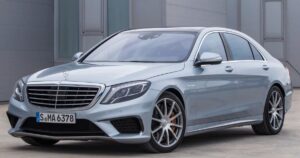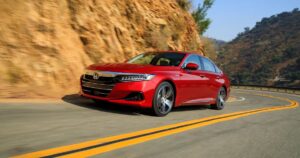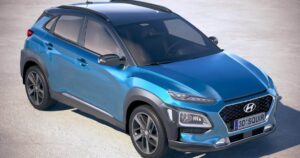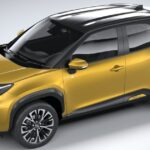Hybrid cars have become increasingly popular in recent years. These vehicles combine traditional gasoline engines with electric motors. Many drivers wonder if a hybrid car can run without gas. The answer is not straightforward.
The performance of hybrid cars depends on several factors. This article explores these factors in depth. It also addresses common questions about hybrid cars and their fuel efficiency.
How Hybrid Cars Use Gas
The primary purpose of gasoline in hybrid cars is to provide power. The gasoline engine works in tandem with the electric motor. The system switches between the two based on driving conditions.
The hybrid car system improves fuel efficiency. The electric motor reduces the load on the gasoline engine. This leads to less fuel consumption. Drivers can benefit from savings at the gas pump.
Benefits Of Driving A Hybrid Without Gas
Driving a hybrid without gas offers numerous benefits for both the environment and the driver. It significantly reduces greenhouse gas emissions contributing to cleaner air and a healthier planet. Drivers save money on fuel costs as hybrids use electricity for short trips which is often cheaper than gas.
Many cities provide incentives, such as tax credits or access to carpool lanes, making hybrid driving even more appealing. Hybrids typically require less maintenance than traditional vehicles, leading to lower long-term costs. The quiet operation of electric power also enhances the driving experience.
Can A Hybrid Car Run on Electricity Alone?

The answer to whether a hybrid car can run without gas depends on the type of hybrid.
Mild Hybrids
Mild hybrids cannot run without gas. The electric motor is too small to power the car alone. The gasoline engine is always needed for operation.
Full Hybrids
Full hybrids can run without gas for short distances. They can operate solely on electricity under certain conditions. These include:
- Low-speed driving
- Short distances
- Light acceleration
Plug-in Hybrids
Plug-in hybrids can run on electricity alone for longer distances. They can be charged at home or at charging stations. This makes them more versatile. They can often drive for 20 to 50 miles without using gas.
Advantages Of Running on Electricity
Running on electricity has several advantages. It can reduce emissions and lower fuel costs. Here are some benefits
- Environmental Impact: Electric power is cleaner than gasoline. Reducing gas consumption decreases carbon emissions.
- Cost Savings: Electricity is often cheaper than gas. Charging at home can lead to significant savings.
- Quiet Operation: Electric motors are quieter than gasoline engines. This leads to a more pleasant driving experience.
Limitations Of Running Without Gas
While running without gas has advantages, there are limitations. Understanding these can help drivers make informed decisions.
Range Limitations
The electric-only range of full hybrids and plug-in hybrids is limited. Most cannot travel long distances without gas.
Battery Life
The performance of hybrid cars depends on battery health. If the battery is depleted, the car may not operate. Regular maintenance is important to ensure battery efficiency.
Charging Availability
Access to charging stations can be an issue. Drivers need to plan routes that include charging options. This is especially important for plug-in hybrids.
Battery Technology in Hybrid Cars
The type of battery used in hybrid cars affects performance. Most hybrids use lithium-ion batteries. These batteries offer several advantages:
- High Energy Density: They can store more energy in a smaller space.
- Long Lifespan: Lithium-ion batteries have a long lifespan. They can often last the life of the vehicle.
- Fast Charging: These batteries can charge quickly, reducing downtime.
The Electric Range Of Hybrid Cars

The electric range is how far a hybrid car can travel using only electric power. This range varies by model and battery size. Understanding this range is essential for potential hybrid car buyers.
- Mild Hybrids: These cars do not have a significant electric range. They rely primarily on the gasoline engine.
- Full Hybrids: Full hybrids offer a limited electric range of one to two miles.
- Plug-in Hybrids: Plug-in hybrids provide the best electric range, often between 20 and 50 miles.
Challenges Of Running Without Gas
Running a hybrid car without gas presents several challenges that can impact its overall performance and utility. First, hybrid vehicles rely on both electric and gasoline power sources to optimize efficiency and extend range.
- While some hybrid cars can run without gas, there are challenges to consider.
- The electric range of full hybrids is often limited. Drivers may need to rely on gasoline for longer trips.
- Not all areas have adequate charging stations. This limitation can be a concern for plug-in hybrid owners.
- Over time, hybrid batteries may lose capacity. Reduced capacity limits electric-only driving.
When operating solely on electric power, drivers may find themselves limited by the vehicle’s battery capacity. This can lead to range anxiety, especially in areas where charging stations are scarce.
Cost Considerations Gas vs. Electric Driving
When considering the cost of driving, comparing gas and electric vehicles (EVs) is essential. The initial purchase price of electric cars is often higher than that of gas-powered vehicles. However, EVs typically have lower operating costs due to reduced fuel expenses and fewer maintenance needs.
- The cost of electricity is generally less volatile than gasoline prices, leading to more predictable expenses.
- Many regions offer incentives and tax credits for purchasing electric vehicles.
- Charging at home can also be cheaper than filling up at a gas station.
It is important to evaluate driving habits and local electricity rates when making a decision. Ultimately, the choice between gas and electric vehicles can significantly impact long-term costs.
When To Use Gas in A Hybrid Car?

In a hybrid car, knowing when to use gas is important for maximizing fuel efficiency and performance. Hybrid vehicles typically operate using both an electric motor and a gasoline engine. The electric motor is used at lower speeds and during light acceleration making it ideal for city driving.
- When more power is needed, such as during highway driving or rapid acceleration, the gasoline engine kicks in.
- It is also beneficial to use gas when the battery is low to ensure a smooth driving experience.
- Drivers should monitor the battery levels and switch to gas when climbing steep hills or during heavy traffic.
Utilizing the gas engine at these times can help maintain power and avoid straining the electric motor. Understanding these scenarios allows drivers to enhance the hybrid’s efficiency and reduce fuel consumption.
Frequently Asked Questions
Can a hybrid car run entirely on electricity?
Yes, full hybrids and plug-in hybrids can run entirely on electricity for short distances. Mild hybrids cannot operate without gas.
How long can a hybrid car run on electricity alone?
The distance depends on the type of hybrid. Plug-in hybrids can often travel 20 to 50 miles on electric power alone.
Is charging a hybrid car expensive?
Charging costs depend on local electricity rates. Generally, charging at home is cheaper than buying gasoline.
Do hybrid cars require special maintenance?
Hybrid cars require regular maintenance like traditional cars. Battery health checks and oil changes are essential.
Conclusion
In conclusion, hybrid cars can run without gas, but the ability to do so depends on the type of hybrid. Mild hybrids cannot operate without gasoline, while full hybrids and plug-in hybrids can run on electricity for limited distances.
Understanding the differences between hybrid types is crucial for potential buyers. The environmental benefits and cost savings make hybrid cars an attractive option for many.

Hello, Ride here I’m excited to share everything about hybrid cars. We provide helpful Tips And guide about hybrid cars.











